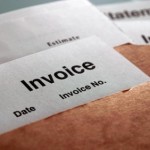
Start Business Credit: Entity Selection
I get asked this question quite often and thought I would clear the air on what business entity selection is best when you start building business credit. This step by far is the most important because it’s the foundation for what you will be building your business credit upon. Not to mention all the other important areas that entity selection affects such as taxes, liability, asset protection and so on.
When a client comes to me for advice on selecting the best business structure, the first questions are:
What Does Your Business Do?
I ask this to get you into the best structure for taxes. How your income is taxed depends on the type of income your business earns. If your income is earned through passive sources – rent, portfolio income, etc., it will be taxed differently than if your business provides a product or a service that you sell.
Where Do You Live?
I ask this question because where you live can make a difference to the kind of business structure you form. Some states charge more for one type of structure over another. Knowing where a client lives allows my entity specialist to choose the most economic structure.
How Much Does Your Business Earn?
This question again relates to taxes, and is specifically geared towards someone who receives “earned” income (that’s income from selling a product or providing a service). There’s an income threshold we look at – once your income surpasses it, it’s time to rethink your options.
Taxation is a Critical Factor!
Did you notice that all three of those questions are related to taxes? That’s the secret lesson to take away here. All business structures will work in all situations. The secret is knowing which business structure best matches your income and tax situation so you keep more of what you earn.
The mistake I see so many business owners make is selecting the wrong entity structure for their company. They get anxious about building their profile with the business credit bureaus and think that one type of entity is better than all the rest. There is no cookie cutter approach to entity selection because every business is different. Don’t take any shortcuts in this step because it can cost you big time.
As a business owner, you have four real choices when it comes to business structures and two bad choices:
* C Corporation
* S Corporation
* Limited Liability Company
* Limited Partnership
* Sole Proprietorship
* General Partnership
Business Credit Blog » Business Credit » Start Business Credit – entity selection for business credit
Sole Proprietor and General Partnership
To learn why Sole Proprietorships and General Partnerships are so dangerous to you and your family, read on.
A Sole Proprietorship is bad…
Have you heard the saying “You get what you pay for?” Well, you normally don’t pay anything to start either a Sole Proprietorship or a General Partnership. Of course you don’t get anything, either. Unless you count the following as valuable business assets:
* Lots of personal liability
* No protection from your business creditors
* An increased risk of being audited
* Problems with valuation for a subsequent sale of the business
The reason for this lack of protection is because neither of these structures is considered a separate legal structure. Instead, they are considered personal extensions of you, if you are operating as a Sole Proprietorship, or you and your partners, if you’re operating as a General Partnership.
And, because these business types are considered personal extensions of you, you don’t have any protection from them.
But a General Partnership is Downright Ugly!
It gets even worse if you are operating with a partner as a General Partnership. That’s because not only are you responsible for all debts and agreements you enter into in the name of your business, you’re also on the hook for all of your partner’s actions in the name of your business as well. This can be devastating if your partner is financially irresponsible, and, because either of you can bind the partnership; you have zero protection from your partner.
If You Don’t Choose a Good Entity, the Government Will Choose a Bad One for You!
If you’ve been doing business up to now without a business structure, both the IRS and your state government have defaulted your business into either a Sole Proprietorship or a General Partnership.
And that means you’re exposed.
Select the proper business structure and incorporate your company if you want to start business credit and you want to protect yourself from personal liabilities. So if you already decided on the right entity structure then the next step is incorporating your business.
If you already have an existing entity set up then the next key step is obtaining a federal Tax ID.
Business Credit Resources
» Business Credit Seminar
» Business Credit Insiders Circle
» Business Credit Blog
Are you ready to incorporate and start building business credit? Become a member of my Business Credit Insiders Circle and gain access to a proven step-by-step business credit building system.
To Your Success!
Marco Carbajo
About the Author
Marco Carbajo is a business credit specialist, author, speaker, and founder of the Business Credit Insider’s Circle. Want to learn more about how you can become a member and gain access to Marco’s business credit secrets, sources, and information on how to obtain unlimited financing for your business without a personal guarantee? Claim his FREE ‘Eight Steps To Ultimate Business Credit Without a Personal Guarantee’ audio seminar ($597 Value), for a limited time by submitting your name and email below =>

 Marco Carbajo is a
Marco Carbajo is a  If you’re at the beginning stage of applying for business credit for your company than you have probably seen the numerous articles, books, and posts explaining the importance of first starting with vendor credit also known as trade credit.
If you’re at the beginning stage of applying for business credit for your company than you have probably seen the numerous articles, books, and posts explaining the importance of first starting with vendor credit also known as trade credit. Vendor credit lines commonly known as “trade credit” is the largest use of capital from business to business and remains the #1 alternative to personal and small business loans. The SBA even reports that vendor credit is the single largest source of small business lending in America today. It also happens to be the initial foundation for businesses to start building business credit.
Vendor credit lines commonly known as “trade credit” is the largest use of capital from business to business and remains the #1 alternative to personal and small business loans. The SBA even reports that vendor credit is the single largest source of small business lending in America today. It also happens to be the initial foundation for businesses to start building business credit. Times are tough for small business owners who have seen their good credit fall to the wayside from using their personal credit cards to finance purchases, equipment, and even payments to suppliers or vendors to keep their businesses going during these tough economic times.
Times are tough for small business owners who have seen their good credit fall to the wayside from using their personal credit cards to finance purchases, equipment, and even payments to suppliers or vendors to keep their businesses going during these tough economic times.